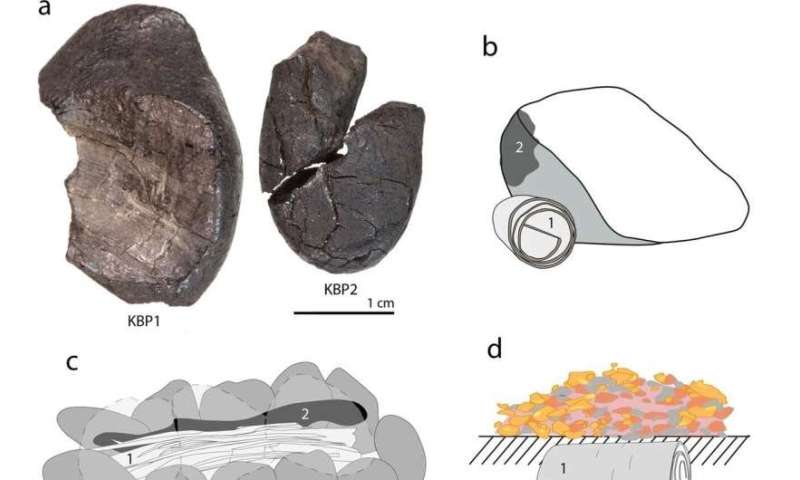Best of Last Week—Neanderthals distilling birch tar, detecting bots posing as humans, slower intelligent brains

It was a good week for historical research as a team of archaeologists at the University of Tübingen, working with a colleague from the State Museum of Prehistory and another from Strasbourg University, found evidence showing that Neanderthals manufactured a synthetic material using an underground distillation technique to create birch tar—a sticky material used to hold tool parts together. Also, a team with the International Thwaites Glacier Collaboration found a surprise in the rocks beneath the Antarctic ice sheet—evidence of glaciers in the area regrowing following an earlier shrinkage. And a pair of archaeologists, one with the University of Johannesburg, the other the University of Lund, found evidence that Neanderthal and human fire-making methods had different origins, though they also found evidence of shared intelligence.
In technology news, a combined team of IT researchers from the University of California, Santa Barbara, and China's Xi'an Jiaotong University devised a model to help detect bots posing as humans—called Finding Large Language Model Authenticity via a Single Inquiry Response (FLAIR), the system uses simple questions that humans can answer but bots can't. And a team of engineers at Hong Kong Polytechnic University achieved a record 19.31% efficiency with organic solar cells. Also, a team of engineers from Technische Universität Ilmenau, Kiel University, University College Cork, Karlsruher Institute of Technology and Fraunhofer Institute for Digital Media Technology Ilmenau, developed an adaptive artificial cochlea that could enhance the performance of hearing aids. And a team with members from Xi'an Jiaotong University, the University of Hong Kong and Xi'an University of Science and Technology developed an organic electrochemical transistor that can also serve as a sensor and processor.
In other news, a team of biomedical engineers at North Carolina State University found that a chemical in a common sweetener damages DNA—sucralose, found in Splenda, was found to be genotoxic. Also a team at the University of California, San Francisco, found evidence in secret industry documents that the makers of PFAS "forever chemicals" covered up their health dangers. And finally, a combined team from BIH and Charité—Universitätsmedizin Berlin found that intelligent brains take longer to solve difficult problems because they do not jump to conclusions.
© 2023 Science X Network